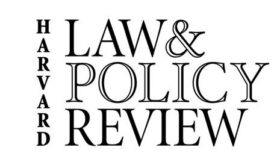By Shanna Cleveland*
When faced with an investigation by the New York and Massachusetts attorneys general over whether or not they misled investors, consumers, and regulators on the impact of climate change, Exxon went on the offensive. It filed a federal lawsuit arguing that the investigations into potential violations of securities and consumer protection laws was a pretext to prevent Exxon from exercising freedom of speech.
Courts have roundly rejected Exxon’s attempts to cloak its commercial speech in the cloth of the First Amendment, but with annual revenues exceeding those of nations like India, Switzerland, and Norway, Exxon has continued to pay white shoe law firms to press its frivolous claims all the way to the Supreme Court.
Despite the legal infirmities of its case, Exxon has been emboldened by what Justice Kagan described as the “weaponization of the First Amendment” by the most corporate-friendly makeup of the Court since the Gilded Age. Nonetheless, Exxon’s claims would require the Court to discard key principles of First Amendment law that it has yet to reject, and they would require Justices who are normally staunch defenders of states’ rights to effectively extinguish one of the central powers of the chief law enforcement officers of states—the power to investigate fraud.
If Exxon gets its way, as Justice Kagan warned, it will “unleash[] judges, now and in the future to intervene in economic and regulatory policy,” allowing “black-robed rulers” to override democratically enacted protections for citizens like securities laws and consumer protection laws.
But Exxon’s arguments fail even the most basic test: identifying what speech it believes qualifies for protection under the First Amendment and why. Under questioning by Judge Caproni, Exxon claimed that “no one is disputing the ability to conduct an investigation into fraud.” And yet, Exxon’s arguments call on the court to halt investigations into securities and consumer fraud based on, in the words of the court, “extremely thin allegations” that the mere investigation of the company’s statements violates the First Amendment because climate change is an issue of public debate.
At most, Exxon’s speech amounts to commercial speech. Although the Supreme Court has extended some limited protection to commercial speech, it has also explained that the First Amendment affords commercial speech less protection than political speech. In fact, no court at any level has held that a corporation whose securities are publicly traded can use the First Amendment to avoid regulations of the financial markets that bar materially false or misleading speech. Nor have the courts recognized any “political controversy” exception to the application of securities laws. Indeed, such laws often regulate communications that are of public interest including statements about the company’s prospects as a result of politically motivated regulatory changes ranging from environmental protections to foreign relations.
Exxon is not the victim here. Instead, the real victims are the investors who purchased or retained Exxon’s securities on the basis of the company’s claims about how it manages its portfolio to avoid any risks related to climate change and the consumers who bought Exxon products because of the company’s advertisements about its environmental performance.
*Shanna Cleveland is Senior Counsel at Free Speech For People and co-counsel on an amicus brief, filed in the U.S. Court of Appeals for the Second Circuit, challenging Exxon’s First Amendment claims.
Image is of the Joliet Exxon Mobil Refinery courtesy of airguy1988.
